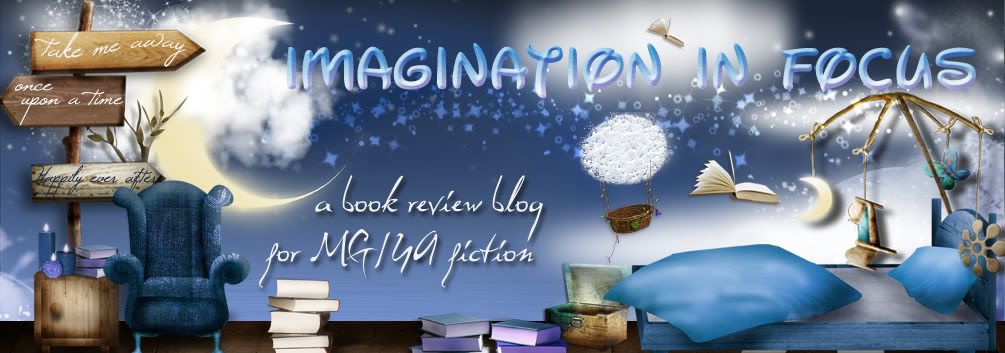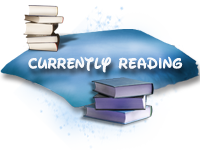 Brideshead Revisited
Brideshead Revisited - Evelyn Waugh
What I Liked/Remembered Most: one of my favorite literary characters of all time, Lord Sebastian Flyte...and of course, his rockin' sidekick, Aloysius (the teddy bear extraordinaire). I seriously love this book! Awesome, awesome themes and a very haunting writing tone.
I have a good mind not to take Aloysius to Venice. I don't want him to meet a lot of horrid Italian bears and pick up bad habits. - Sebastian, keeping in mind that Aloysius is, after all, a teddy bear.
The Brothers Karamazov - Fyodor Dostoevsky
 What I Liked/Remembered Most
What I Liked/Remembered Most: this is probably my all-time favorite classic. Can't say enough how awesome it is. The first time I heard this story, it was an annotated children's edition that one of my teachers read to us. Then it was assigned 8th grade year, I think. Dostoevsky is definitely best remembered for
Crime and Punishment, but this story is the winner, in my opinion.
"Above all, don't lie to yourself. The man who lies to himself and listens to his own lie comes to a point that he cannot distinguish the truth within him, or around him, and so loses all respect for himself and for others. And having no respect he ceases to love." Candide - V

oltaire
What I Liked/Remembered Most: probably that a classic could be weird, funny, bawdy, insightful, tragic, frustrating, and educational all at the same time. Classics usually elicit a yawn or a moan/groan from students, right? Definitely not so with this book! From Dr. Pangloss to that old woman (and her bottom) and our endearing but incredibly, frustratingly stupid main character, Candide, Voltaire's masterpiece certainly doesn't disappoint.
The Divine Comedy - Dante
What I Liked/Remembered Most
I Liked/Remembered Most:
"Lasciate ogne speranza, voi ch'intrate". Ahh, yes, and imagine my surprise when I saw
that inscription above one of my English classrooms. Very nice, teachers! But let's forget the fact that this is a really old, really well-known classic and think about what exactly Dante did: he created his own version of Hell, and populated it with people he didn't like. There's just something sardonically amusing about that. But anyway, it's epicness can't be matched. You go, Mr. Dante!
Ethan Frome - Edit Wharton
 What I Liked/Remembered Most
What I Liked/Remembered Most: If ever there was a book that was
made by its scenery, it's
Ethan Frome. I originally found it hard to like this book (not a lot of action and not very many characters) but I remember the eeriness of cold, rural Massachusetts and I remember feeling the characters' desperation and longing. Very short, but very powerful. Thank you, professor, for making me read this! It
was time well spent, after all!
Fah renheit 451
renheit 451 - Ray Bradbury
What I Liked/Remembered Most: I remember that this was the very first dystopian novel I read/was required to read, and I still haven't read anything to match it (
Brave New World was effectively creepy, but a little too weird to take
451's place). The concept of the book burning was so simply, artistically disturbing. A few quotes I remember:
""With school turning out more runners, jumpers, racers, tinkerers, grabbers, snatchers, fliers and swimmers, instead of examiners, critics, knowers and imaginative creators, the word intellectual, of course, became the swear word it deserved to be.""We need not to be let alone. We need to be really bothered once in a while. How long is it since you were really bothered? About something important, about something real?"The Gr eat Divorce
eat Divorce - C.S. Lewis
What I Liked/Remembered Most: this is allegory at its greatest and brilliance. C.S. Lewis is effective, but he's not always cute and cuddly and moonbeams and rainbows. And this book not only opened my eyes, it held up a mirror and thoroughly made me think. What if I was a passenger on that train? Would I stay in Heaven or would I return back to what I knew, even if it made me miserable? The image that stands out clearest in my mind, though, is the man with the red lizard. Read it for yourself!
"Those that hate goodness are sometimes nearer than those that know nothing at all about it and think they have it." Jude the Obscure - Thomas Hardy
 What I Liked/Remembered Most
What I Liked/Remembered Most: So glad our class read this instead of
Tess of the Doohickies. That seems to be Hardy's most famous work, so I'm glad we read this instead. It seems like the more emotional (and tragic) a classic is, the more it'll stay with me. I don't know of many more poignant, desperate, striving characters in fiction than Jude. His story is inspiring and heart-wrenching all at once. Certain scenes, too, I'll always remember...namely Jude on the road to University. Sometimes when I get annoyed with college, I remember Jude - who isn't even real - and I remember how incredibly lucky I am to have what he sought so hard to gain.
On e Day in the Life of Ivan Denisovich
e Day in the Life of Ivan Denisovich - Alexander Solzhenitsyn
What I Liked/Remembered Most: as far as books go, this one was okay. But it is so cool to be able to say, "Why yes, Sophisticated Person! I have
indeed read something by Solzhenitsyn!" This is a perfect example of the awesome blend of history and literature. And there's just something enjoyable about the raw, sometimes bleak but equally descriptive style of Russian writers.
Paradise Lost - John Milton
 What I Liked/Remembered Most
What I Liked/Remembered Most: this "book" gets the credit for making me think "huh, poetry is actually pretty cool." Yes, this is an epic poem, and yet it is a fascinating story that seems to supplement the Bible. When we think of Michael, and Lucifer, and even Adam and Eve, we're (a lot of times) thinking of how they're portrayed in Milton's epic, as opposed to the actual Bible. That's pretty powerful fiction. There's one passage in particular that I've remembered all these years:
This having learnt, thou hast attained the sum Of Wisdom; hope no higher, though all the Stars Thou knew’st by name, and all th’ ethereal Powers, All secrets of the deep, all Nature’s works, Or works of God in Heav’n, Air, Earth, or Sea, And all riches of this World enjoy’dst, And all the rule, one Empire: only add Deeds to thy knowledge answerable, add Faith, Add Virtue, Patience, Temperance, add Love, By name to come called Charity, the soul Of all the rest: then wilt though not be loth To leave this Paradise, but shalt possess A paradise within thee, happier far. Hmm, John Milton really liked his commas!
A Tale of Two Cities - Charles Dickens
What  I Liked/Remembered Most
I Liked/Remembered Most: this book is full of memorable images: Madame Defarge knitting the names of her victims, Lucie Manette holding her old father in the beginning, Sidney Carton, walking up to the guillotine
... and of course, the iconic "It was the best of times, it was the worst of times..." Another classic that deliciously blends history into its intricate storylines. Though tied with
Bleak House for my favorite Charles Dickens novel,
ATOTC is a classic in every sense of the word that should be devoured by everyone at least three times. :)
Utopia - Thomas More
 What I Liked/Remembered Most
What I Liked/Remembered Most: ohh, so many reasons why this book made the list! So clever, so interesting, so amusingly dysfunctional, this society that Thomas More created. I'm actually of the opinion that
Utopia is actually nothing of the sort. Is it satire? Is it to be taken seriously? Different opinions, I guess. I think the most amusing part has to do with choosing spouses: prospective brides and grooms must see each other stark naked first, in order to prevent later physical dissatisfaction. Hmm. Whether gravely series or bitingly satirical, it's too bad Thomas More isn't walking among us today, haha. His views of private property aside, he'd make a
legit president.
Okay, so that's my list! And here's Honorable Mention (classics that I love, but read on my own time instead of in school):
Les Miserables, Animal Farm, Bleak House, Don Quixote, The House of the Seven Gables.
Which books would make your list?
 That's me now, apparently. A book paparazzo. Because when I went to the bookstore today to invite two hardbacks to come live on my bookshelf, I saw so many of the highly anticipated and much-blogged about new releases. And I just couldn't help but get excited to see so many new releases in their pretty hardback forms (and if you happen to be reading this and thinking 'That's what you do when you go to a bookstore - you look at books!' I gotta implore you...WORK WITH ME HERE! :D )
That's me now, apparently. A book paparazzo. Because when I went to the bookstore today to invite two hardbacks to come live on my bookshelf, I saw so many of the highly anticipated and much-blogged about new releases. And I just couldn't help but get excited to see so many new releases in their pretty hardback forms (and if you happen to be reading this and thinking 'That's what you do when you go to a bookstore - you look at books!' I gotta implore you...WORK WITH ME HERE! :D )
































































